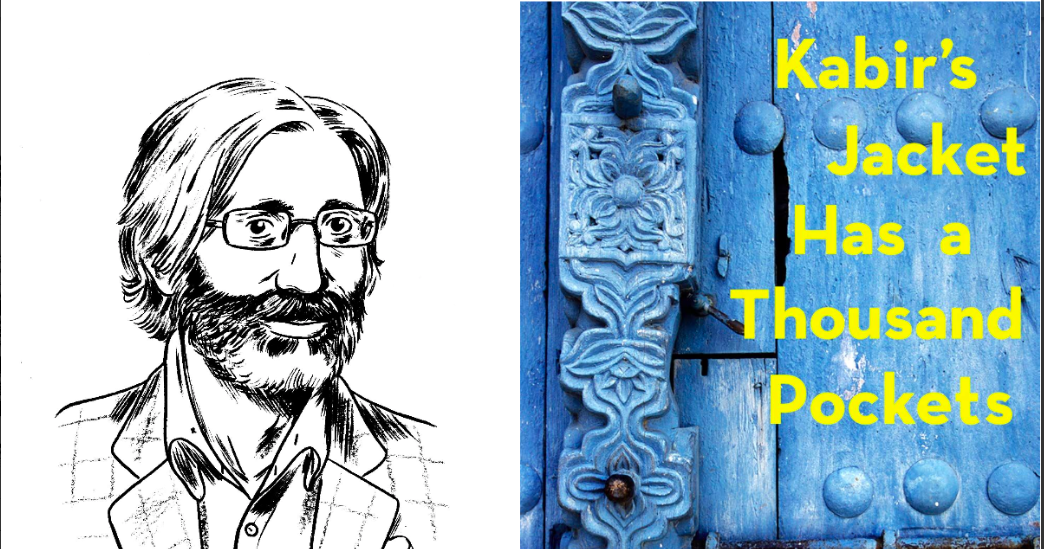Poet Ayaz Pirani has roots extending all over the world. His parents were born in Kenya and Tanzania, and he himself was born in Musoma, Tanzania. However, Pirani grew up in Canada and studied in Toronto, Montreal, and Vermont. Now, he lives in California.
With such widespread roots, it is little surprise that Pirani’s second book of poems, Kabir’s Jacket Has a Thousand Pockets, explores feelings of displacement and cultural loss. Here, Pirani weaves together geographic and historical topics, meditating on the impact of colonialism and generational immigration through a nostalgic poetic lens.
Pirani’s sophomore release has already earned high praise in its first months after publishing. “Wisdom poetry has seldom seemed as surprising or sly as it does in the hands of Ayaz Pirani,” raves author David Rivard.
Ayaz Pirani as a “Plainspoken Anti-Prophet” Poet
Pirani published his first book, Happy You Are Here, in 2016. It earned quick praise for the poet’s simple, grounded style of writing. In the words of author Heather Birrell, “Pirani positions himself as a kind of plainspoken anti-prophet, bringing human nosiness and gratitude to a number of subjects… as well as the more mysterious geographies of the soul.”
Pirani writes about everything from immigration and the Ngorongoro crater, to a mother’s love and Toronto. Through all of his work, he weaves the thread of his heritage and displacement. His works have appeared in other publications as well, such as in the Poem in Your Pocket collections from the Academy of American Poets and the League of Canadian Poets, as well as the Tipton Poetry Journal and Josephine Quarterly in 2016.
His second complete collection, Kabir’s Jacket Has a Thousand Pockets, continues Pirani’s exploration of history and geography through the lens of his own experience.
Ayaz Pirani’s Range of Influences for Exploring Nostalgia
Pirani cites strong cultural influences from his African heritage, including Bijak; a poetry compilation by 15th century Indian poet Kabir. He also cites Mirza Ghalib, a Persian and Urdu poet specializing in Persian courtly poetry known as the “ghazal”. These influences, alongside his own experiences as an immigrant, weave together seamlessly in his latest anthology.
For example, in “African Masks” Pirani writes:
“As a kid I’d hate to lose my way
to the drawers of Ornithology or African Masks.
I didn’t fancy the Mesa blankets
and said no to all the Walks of Tears, of Fears, of Hunger.
Best was to find myself in the Ice Cream Shop
or Gift Shop,
the white people’s diorama
in which they do not disappear from the Earth.
I still don’t like pinned butterflies
and pieces of petrified forest you take home in your pockets.
I don’t need to see the sunken treasure
brought to dry land.
It’s like if there’s a gem
on the Queen of England’s crown that I know
belongs to my bride,
you won’t see me reach out and take it.”
Ayaz Pirani Inspired by Cultural Tradition
“I thought the first poems I experienced were the ones I read,” Pirani says. “But then I was reminded that the first poems I experienced were the ones I heard. My mother is a noted ginan [Shia Ismaili devotional hymn] singer…at the moment it seems impossible to try and explain how this oral tradition affected me.”
Rather than studying the formal structure of classic poems, Pirani follows a poetic instinct borne out of his early influences.
“When I’m writing, I just keep writing and try not to make too many decisions,” he explains, allowing his creative spirit to take over. Rather than publishing his poems individually, he prefers to write them as collections. “The space in journals allotted to a poet like me is so small and intermittent, so cramped, that my poems couldn’t be open and true.”
Pirani’s book is available through the Mawenzi Publishing House and via Amazon and Target.



